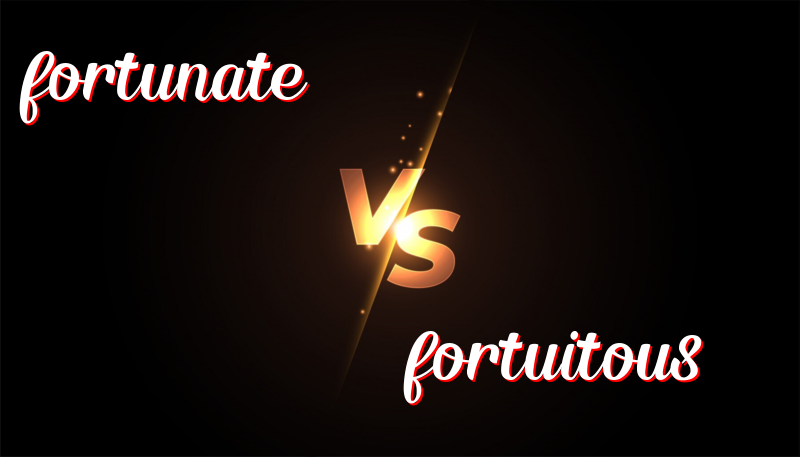英語單詞fortunate 與 fortuitous的區別
December 06, 2024
幸運與碰巧的分別:fortunate 與 fortuitous
在學習英語中,我們常常會遇到一些容易混淆或看起來相似的字詞,例如 fortunate 與 fortuitous。這兩個字在歷史上有著相似的詞根,但它們的意思和用法卻有明顯的差異。
字彙歷史
Fortunate 源自拉丁文的 “fortunatus”,意指 “被幸運女神眷顧”,通常用來描述一個人或情境是幸運的或有幸的。Fortuitous 源自拉丁文的 “fortuitus”,原本含有 “偶然發生” 的意思,強調意外性或隨機性,而不是幸運。
用法區別
Fortunate: 是形容詞,通常形容一個人因外界因素而有幸或幸運,經常帶有正面的情緒語境。
Fortuitous: 是形容詞,指一些事情的發生是偶然的,這個詞主要強調的是事件的偶然性,不一定包含正面的意味。
記憶技巧
- 記得 fortunate 和 “fortune”(財富)有關,通常是好運或有利的情況。
- Fortuitous 聽起來像 “spontaneous”(自發的、突發的),用來記住該詞有”偶然發生”的意思。
例句:Fortunate
- She felt fortunate to have such supportive friends.
她覺得有這樣支持她的朋友很幸運。 - It’s fortunate that the weather cleared up just before the wedding.
很幸運,天氣在婚禮前轉晴。 - He was fortunate to escape the accident with only minor injuries.
他很幸運,在事故中僅受輕傷。 - The team was fortunate to secure a sponsor in time.
這支團隊很幸運地及時獲得了一個贊助商。 - We consider ourselves fortunate to have found such a great deal.
我們認為能找到這麼好的交易實屬幸運。
例句:Fortuitous
- The discovery of the ancient tomb was a fortuitous event.
古墓的發現是一個偶然事件。 - It was purely fortuitous that we met at the airport.
我們在機場相遇完全是偶然的。 - The timing of their decision was completely fortuitous.
他們決策的時機完全是偶然的。 - The fortuitous arrival of the spare parts saved the project.
備件的偶然到來拯救了這個項目。 - His fortuitous encounter with an old friend led to a new job opportunity.
他與老朋友的偶然相遇帶來了一個新的工作機會。
總結
總結來說,fortunate 是描述一個正面的幸運情況,而 fortuitous 則描述事件的偶然性而非其結果的好壞。在寫作或口語表達中,使用這兩個詞時確保掌握其正確的使用語境,從而清晰表達您的意思。

Leave a Reply
You must be logged in to post a comment.